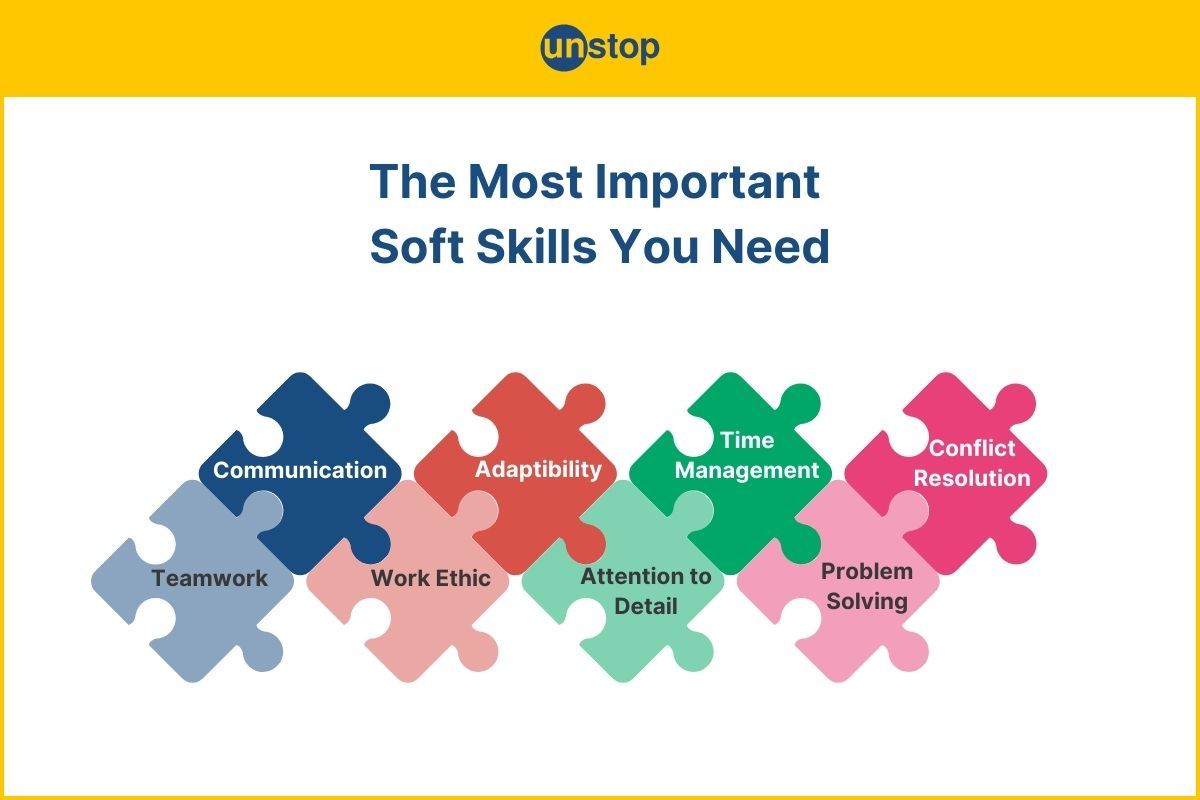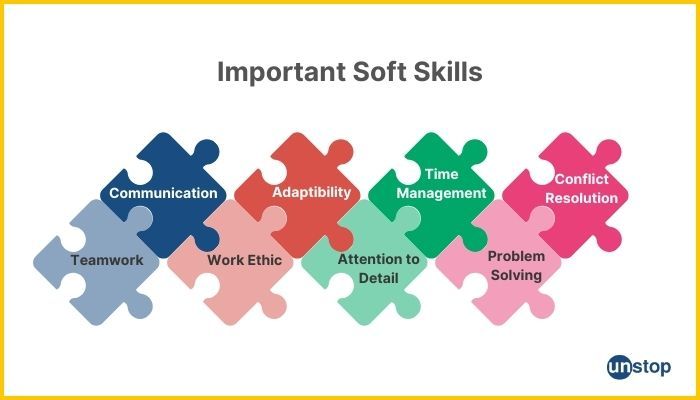- Why is a resume headline for freshers important?
- Best Resume Headline Examples for Freshers
- Tips for writing resume headlines for freshers
- What is a resume headline?
- Why is a resume headline important?
- Tips to write resume headlines for freshers/ professionals
- Difference between resume headlines and resume titles
- Resume headline examples
- Conclusion
- Frequently Asked Questions
- What is an 'About me' section?
- Importance of the 'About me' in resume
- How to write an 'About me' section in a resume?
- 'About me' section resume examples
- Tips for writing the 'About me' section
- Bottom Line
- What is a resume summary?
- What makes a good resume summary?
- Format of a resume summary
- Do you really need a resume summary?
- How to write a resume summary?
- Resume summary examples
- Resume summary for job roles: Sample accomplishments to highlight
- A quick recap!
- Frequently Asked Questions (FAQs)
- What is the Declaration in a Resume?
- Declaration in Resume vs. Curriculum Vitae (CV)
- Samples of Declaration in Resume
- Where to Place Your Declaration for Maximum Impact
- Beyond the Declaration: Optimizing Your Entire Resume
- Frequently asked questions (FAQs)
- What Is An ATS?
- How Does An ATS Work?
- Key Features Of An ATS-Friendly Resume
- Common Mistakes To Avoid When Making Resumes ATS-Friendly
- Steps To Create An ATS-Friendly Resume (That Actually Gets Seen)
- An ATS-Friendly Resume is Great - But Guidance Takes it Further
- ATS-Friendly Resume Template
- ATS-Friendly Resume Checklist
- Conclusion: Beat The Bots, Impress The Humans
- Frequently Asked Questions
- What is a resume?
- Tips for creating the best resume
- What Makes the Best Resume Format for Freshers?
- Sample Resume Formats For Freshers 2025
- Conclusion
- Frequently Asked Questions (FAQs)
- Resume Objective Examples: What is a Resume Objective?
- How to Write a Good Resume Objective for Freshers?
- Why Do I Need a Resume Objective?
- When to Use a Resume Objective?
- 100+ Resume Objective Examples for Different Profiles for Freshers
- Quick Tips for Freshers/Candidates With No Experience
- How to include strengths in resume [for freshers & experienced]?
- Difference between key strengths and skills
- Importance of strength in resume for freshers
- Best strengths to list on your resume
- Tips For Adding Strengths in Resume
- How To Select The Right Skills For Resume?
- How To Write Skills In A Resume?
- Types Of Skills: Hard Skills vs. Soft Skills
- Key Skills For Resume: Hard & Soft Skills
- Key Skills For Jobs
- Common Pitfalls To Avoid When Listing Skills For Resume
- Summing Up
- Frequently Asked Questions
- What Are Soft Skills?
- Why are Soft Skills Important?
- Soft Skills vs Hard Skills
- Top 8 Soft Skills You Need In 2024
- Soft Skills For Resume for Different Work Profiles
- 8 Ways To Improve Your Soft Skills
- Frequently Asked Questions (FAQs)
- How To Explain A Gap In Your CV
- 5 Tips On How To Fill A Gap In Your CV
- COVID-19 Impact: Managing Gaps in CV Due to Unemployment
- Sample Resume with Employment Gap
- Navigating Interviews: Articulating CV Gaps
- Frequently Asked Questions (FAQs)
- Hobbies and Interests: Meaning & Importance
- When to include hobbies and interests in resume?
- Difference Between Interests & Hobbies For Resume
- Attractive Hobbies for Resume & Their Importance
- Quick List of Hobbies To Add in Resume [80+ Examples]
- Job-Relevant Hobbies And Interests For Resumes
- Selecting Interests And Hobbies For Resume: Points To Remember
- Summing up
- Importance Of Project Description In Resume
- Strategies For Listing Projects On Resume
- Where To Place Projects In Resume
- Essential Project Details For Resume
- Highlighting Academic & Personal Projects
- Including Freelance & Contract Work Projects
- Addressing Non-Disclosure Agreements In Project Descriptions
- Dos & Don'ts For Project Description In Resume
- Project-Based Resumes For Career Changers & Freshers
- Frequently Asked Questions (FAQs)
- What Is an MBA Resume?
- Key Sections of an MBA Resume
- Formatting an MBA Resume
- Resume Samples For MBA Graduates
- Tips to Make your Resume Stand Out!
- Conclusion
- Frequently Asked Questions
- Never create a one-for-all resume
- Add an achievement section
- Design a resume that suits the job profile
- Don’t skip information
- What is a Cover Letter for Resumes?
- Format to Write a Great Cover Letter for Resumes
- Tips to Get Hired With the Perfect Cover Letter
- Sample Cover Letters for Resume
- Frequently Asked Questions
Soft Skills - Examples Based on Job Profiles, Tips & More!

Today, non-technical or interpersonal skills are just as important as technical knowledge to succeed in the workplace. These interpersonal skills that determine how you navigate workplace relations, interact with co-workers, and conduct yourself at work are referred to as soft skills.
Soft skills play an extremely important role in modern-day hiring and it’s critical that candidates are able to showcase their soft skills in a resume and during the job interview. In this article, we will explore some soft skills examples that you can use in your resume and understand the importance of soft skills for resume.
What Are Soft Skills?
Soft skills are personal attributes that enable individuals to effectively interact and communicate with others. They are essential in both personal and professional settings. For example, active listening is a soft skill that involves fully engaging with someone speaking and demonstrating understanding.
The term 'soft skills' is often used to describe an individual's emotional intelligence quotient (EQ). In today's highly interconnected and fast-paced work environment, soft skills are crucial for building strong relationships, fostering teamwork, and navigating complex professional dynamics.
Your dream internship is just a click away. Start applying now!
Hard Skills
Hard skills refer to specific abilities and knowledge that are easily measurable and teachable. They are typically acquired through formal education, training programs, or work experience. An example of a hard skill is proficiency in a programming language like Python and Java. These skills are often listed on resumes and are essential for performing specific tasks or jobs effectively.
Hard skills are also considered technical skills and are used to describe an individual’s intelligence quotient.
Why are Soft Skills Important?
To be successful in one's career, one requires a combination of hard skills and soft skills. While hard skills help you to manage your core responsibilities at work, soft skills are personality traits that can help you build a relationship and solve workplace problems.
Soft skills help you use hard skills to the maximum extent.
Soft skills decide how well one interacts with others. As the corporate world evolves, the demand for employees who demonstrate a good combination of hard skills and soft skills is in greater demand.
Soft Skills vs Hard Skills
To help you understand the two types of skills better, let's quickly go through the difference between hard skills and soft skills.
| Criteria | Hard Skills | Soft Skills |
| Definition | Hard skills are technical abilities specific to the job, which have been acquired through proper training and learning. | Soft skills are the set of personality traits, which ascertain an individual's relationships with others in a work environment. |
| Are they needed for a job? | Major occupational requirements for the job. | Widely acceptable behavioral skills. |
| How are they acquired? | Acquired through formal education and training Programme | Acquired through an informal process such as upbringing, and social surroundings. |
| Orientation | Aptitude oriented | Attitude oriented |
| Measurable | Measurable | Immeasurable |
| Transferable | These are transferable skills | These are not transferable skills and vary from person to person |
Top 8 Soft Skills You Need In 2024

Following are some soft skills for resume that can take your profile from being average to excellent.
1. Teamwork
Teamwork is needed in most professions. This is a soft skill that determines how well you can bond with your colleagues and pull off projects that require productive collaboration or working in partnership.
2. Communication Skills
Effective communication not only enhances relationships but also contributes to increased efficiency. this soft skill includes a range of skills such as active listening, clear self-expression, conflict resolution, positive body language, and appropriate questioning. Thus, having good communication abilities is crucial for collaboration, innovation, and efficiency in the workplace.
3. Work Ethic
For any employer, work ethic is one of the most important aspects to look for in a candidate. Work ethic means being reliable, disciplined, hardworking, and dedicated. Hence, this is one of the most important soft skills for resume that can instantly reflect a person's dedication, determination, commitment, effort, and loyalty for one's job.
4. Adaptability
The new work regime calls for being flexible or adaptable. So candidates who can easily shift gears are hot favorites of employers. Adaptability as a soft skill in your resume reflects agility and the openness to learn new skills and adjust well in a changing environment.
5. Attention to Detail
Incorporating 'attention to detail' as a skill in your resume is an effective way to demonstrate to potential employers that you possess the ability to pay close attention to the nuances, recognize minor errors, and produce accurate work of high quality. This soft skill highlights your ability to effectively manage complex tasks, prioritize work, and produce precise outcomes that meet employers' expectations.
Do you know? Post-pandemic, the need for social and emotional skills is high in demand. In fact, the proportion of companies addressing empathy and interpersonal skills doubled in 2020, according to McKinsey Global Survey on reskilling.
6. Time Management
Time management refers to the ability to prioritize tasks, allocate time effectively, and meet deadlines. It is a crucial soft skill in the workplace as it helps individuals become more organized, efficient, and productive.
Effective time management allows employees to handle multiple tasks simultaneously, reduce stress levels, and maintain a healthy work-life balance. It also demonstrates professionalism and reliability, leading to improved job performance and overall success in one's career.
7. Problem-Solving
Problem-solving is the ability to identify, analyze, and solve problems effectively. It allows individuals to approach challenges with a logical and systematic mindset. Problem-solving skills enable employees to find innovative solutions, make informed decisions, and overcome obstacles. This skill not only enhances productivity but also promotes teamwork and fosters a positive work environment.
8. Conflict Resolution
Conflict resolution is the process of addressing and resolving conflicts or disagreements between individuals or groups. It promotes effective communication, collaboration, and teamwork. Conflict resolution skills help in maintaining a positive work environment, improving productivity, and fostering healthy relationships among colleagues. It also prevents conflicts from escalating and allows for the successful resolution of issues, leading to better outcomes and job satisfaction.
Apart from these, some of the most sought-after soft skills at work are:
- Dependability
- Flexibility
- Leadership
- Research
- Creativity
- Integrity
Soft Skills For Resume for Different Work Profiles
Every job demands a different set of skills. This is true for both hard skills and soft skills. For you to have a successful career, possessing soft skills that are in sync with your career field is very important.
Here, we have curated a list of soft skills for different career paths:
| Work Profile | Top Soft Skills |
| Management |
|
| Customer Service Soft Skills |
|
| Sales |
|
| Digital Marketing |
|
| Education sector |
|
| Data Analytics or IT-related jobs |
|
| Marketing |
|
8 Ways To Improve Your Soft Skills
1. Watch out for the skills that you need to develop based on your work profile
Every person has their strengths and weaknesses. Therefore, to learn how to develop your soft skills, the first step is to prioritize them. An important step is to take some time to assess your areas of strength as well as areas that require improvement. This will help you chalk out your soft skills. Then, you can compare your list to the soft skills that are most essential for your specific career path.
This analysis will allow you to recognize where you excel and where you need to focus your efforts on skill development. By doing this, you can invest your time and resources wisely to enhance the soft skills that will enable you to succeed in your career.
2. Seek Feedback
Seeking feedback from trusted friends or mentors can be a valuable tool for gaining an outside perspective. Hence, once you have your list of soft skills ready, it is important to consult the same with those who know you well.
By doing so, you can gain constructive criticism and feedback that will allow you to identify any blind spots or gaps in your self-perception. This feedback will enable you to gain valuable insight into areas for improvement that you may not have otherwise recognized. In turn, this will help you develop a more comprehensive understanding of your soft skills and enable you to make informed decisions about your professional growth and development.
3. Challenge yourself
It is essential to challenge yourself by stepping outside of your comfort zone and engaging in situations that may not come naturally to you. Although it may feel uncomfortable at first, this approach is necessary to improve your soft skills effectively. By doing so, you can enhance your self-awareness, emotional intelligence, and resilience, leading to better interpersonal skills and professional growth.
Remember, the goal is not to make yourself uncomfortable but to challenge yourself to become a more well-rounded individual.
4. Self-Reflect
Self-reflection is an ongoing and crucial practice that can benefit everyone. So, to sharpen your soft skills, you must reflect on instances where you didn't receive the response you expected or where someone misunderstood your intentions. Consider the words you used, your tone, and even your body language as you communicated.
Through this process, you may be able to gather some important observations about your behavior that can help you improve your soft skills over time. Self-reflection enables you to develop greater self-awareness and emotional intelligence, leading to improved interpersonal skills and professional growth.
5. Actively Listen
Active listening entails listening attentively enough to restate the other person's message in a manner they would agree with, even if you disagree with them. It shows that you genuinely comprehend their perspective and can articulate it effectively, even if you have a differing viewpoint. By practicing active listening, you can improve your communication skills and build stronger professional relationships.
6. Take up a leadership role
Taking on leadership roles is an excellent way to develop and strengthen your soft skills. When you are in a leadership position, you are required to communicate effectively, listen actively, provide feedback, manage conflicts, and motivate and inspire others.
As you encounter challenging situations, you will learn to be patient, empathetic, and collaborative. Over time, you will become more skilled at managing relationships and leading teams, which will be valuable in both your personal and professional life.
7. Sharpen your critical-thinking skills
Critical thinking is a fundamental soft skill that serves as the foundation for many others. Reflective thinking aimed at self-improvement and the ability to analyze and evaluate feedback received from peers and colleagues are both examples of critical thinking. By using critical thinking skills, you can identify areas for improvement and develop effective strategies to enhance your soft skills.
It has been rightly said, 'Soft skills get little respect, but can make or break your career.' With this thought in mind, we hope the above article will go a long way to help you understand the importance of soft skills.
Frequently Asked Questions (FAQs)
1. What are soft skills?
Soft skills refer to a set of personal attributes and abilities that enable individuals to interact effectively and harmoniously with others. These skills include communication, teamwork, adaptability, leadership, and emotional intelligence.
2. Why are soft skills important?
Soft skills are important because they complement technical or hard skills and play a crucial role in personal and professional success. They enhance communication, foster positive relationships, promote teamwork, and contribute to overall job performance and career advancement.
3. How can I improve my soft skills?
To improve your soft skills, you can:
- Practice active listening and effective communication.
- Seek feedback and be open to constructive criticism.
- Develop empathy and emotional intelligence.
- Take part in team-building activities and projects.
- Continuously learn and adapt to new situations.
- Enhance your leadership skills through self-reflection and learning opportunities.
4. Can soft skills be learned or developed?
Yes, soft skills can be learned and developed through self-awareness, practice, and continuous improvement. While some individuals may naturally possess certain soft skills, everyone has the potential to enhance their abilities through intentional effort and dedication.
5. How can I showcase my soft skills during a job interview?
To showcase your soft skills during a job interview, you can:
- Provide specific examples from your past experiences where you demonstrated relevant soft skills.
- Share stories that highlight your ability to work well in teams or handle challenging situations.
- Use active listening and effective communication techniques during the interview.
- Display a positive attitude, adaptability, and enthusiasm for learning and growth.
6. Are soft skills more important than technical skills?
Soft skills and technical skills are both important in different ways. While technical skills are necessary for performing specific tasks, soft skills are crucial for effective collaboration, problem-solving, and overall success in the workplace. A combination of both technical and soft skills is often desired by employers.
You may also be interested in the following:
- Must-Have Skills For Resumes: The Complete Guide (100+ Examples)
- 10 Essential Skills To Put In Resume For IT Freshers
- What Challenges Are You Looking For In A Position? 4 Tips To Answer This Interview Question
- How To Answer "What Does Teamwork Mean To You?" In A Job Interview
- 10+ Major Types Of Interview: Must Know Format, Techniques & Tips
As a biotechnologist-turned-writer, I love turning complex ideas into meaningful stories that inform and inspire. Outside of writing, I enjoy cooking, reading, and travelling, each giving me fresh perspectives and inspiration for my work.
Login to continue reading
And access exclusive content, personalized recommendations, and career-boosting opportunities.
Subscribe
to our newsletter
Blogs you need to hog!

How To Write Finance Cover Letter For Morgan Stanley (+Free Sample!)

55+ Data Structure Interview Questions For 2026 (Detailed Answers)

How To Negotiate Salary With HR: Tips And Insider Advice












Comments
Add comment